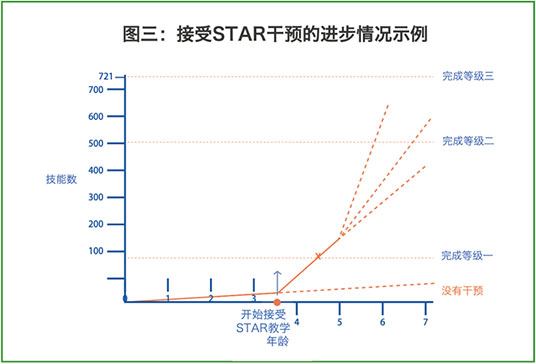OST and American authorized autism institution STAR Autism Support achieved
strategic partnership in 2016, and STAR Curriculum have been successively carried out in
cities like Guangzhou, Beijing, Shanghai, Shenzhen, Wuhan, etc. So far, STAR
Curriculum has already established more than 20 centers nationwide. Joel Arick,
the founder of STAR System in the United States, and his team of professionals
conducted research and cooperation in OST. They personally trained and
clinically provided guidance to different cases, and jointly provided STAR
Teaching Strategies based on autism research for children with autism.
STAR, the acronym of Strategies for Teaching Based on Autism
Research. STAR curriculum flexibly applies three strategies of Discrete Trail
Teaching (DTT), Pivotal Response Teaching (PRT), Functional Routines (FR). The curriculum is divided into 3 Levels that comprehensively improves children’s
ability in six curriculum areas, which are responding to language,
communicating with others, natural communication, functional academics, social and play skills,
functional routines. It is suitable for the learning needs of preschoolers with autism at
different stages of development.


 3大策略
3大策略
Students learn and improve the following skills: attention, imitation,
following simple directions, expressing simple needs, following daily routines,
basic social skills such as waiting, taking turns and sharing, and
understanding some basic concepts such as color and shape.

The progress was recorded based on the participants' intervention in
the center for different periods of time (in months). (blue for the total
number of initial skills, orange for the
total number of post-intervention skills)
Students learn to follow more complex directions, use sentences to
express and communicate, ask and answer simple questions, complete some
routines independently , play with varieties of toy, participate in group
activities, and understand more concepts such as sorting, numbers, letters(Chinese characters), etc.

The progress was recorded based on the participants' intervention in
the center for different periods of time (in months). (blue for the total
number of initial skills, orange for the
total number of post-intervention skills)
Students in Level 3 will further expand vocabulary and the length of
sentences, ask and answer more complex questions, improve academic skill and the
skill of interacting and playing with peers, following complex school routines.
Students in School Readiness Phase will participate in activities for
longer period of time, learn to manage daily schedule, solve abstract problems, engage in more
complex social situations, and independently participate in general school
activities.
